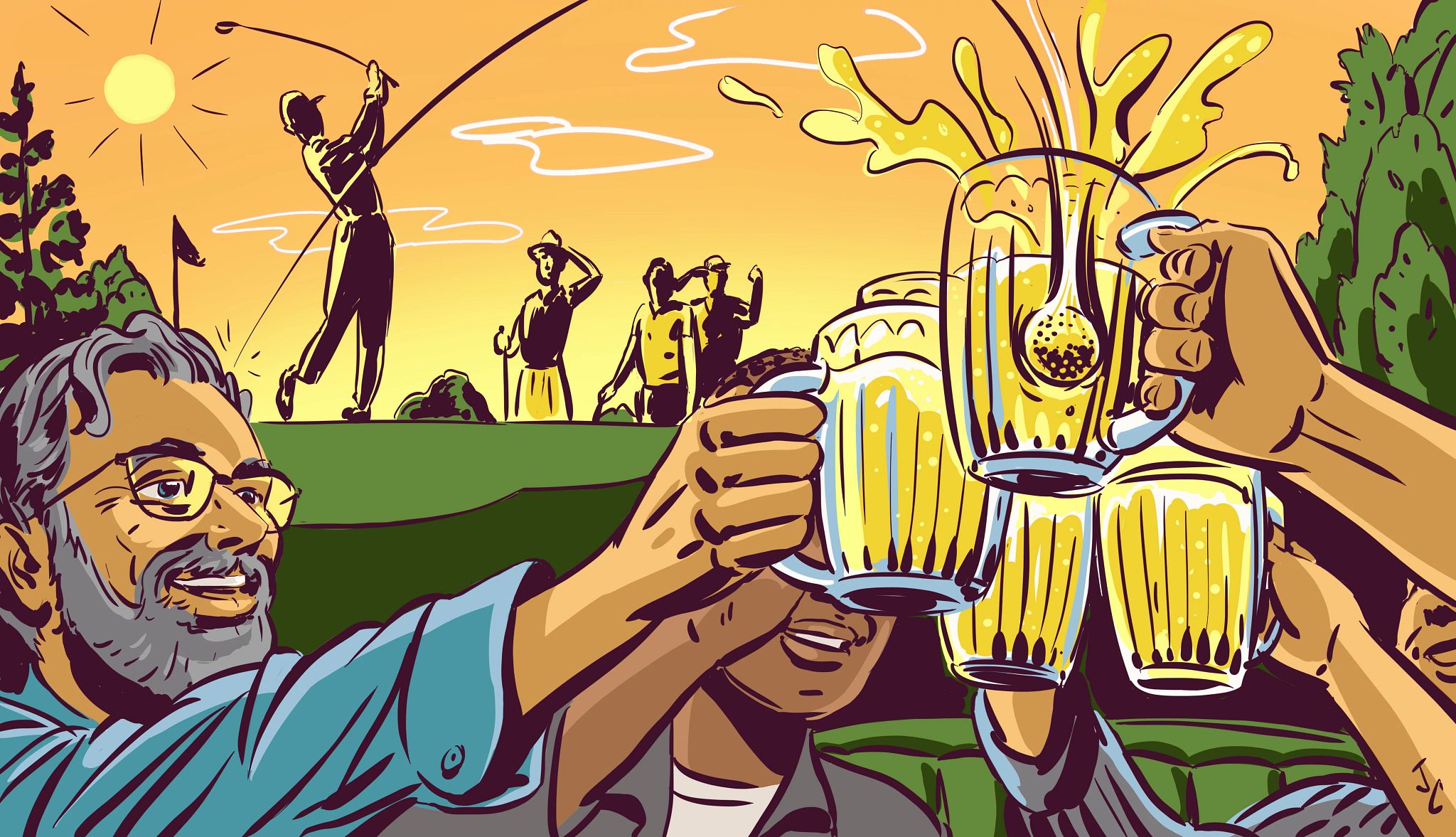AARP Hearing Center


This is the fifth in a series of columns about retirement by former AARP Publications deputy editor Neil Wertheimer. Read his previous column here.
It’s a glorious sunset this August evening and I’m sitting at a picnic table after nine holes of twilight golf, drinking a tall can of ale, laughing, teasing, telling stories, having a grand old time with eight or so grownups I’ve only met in the past year. In some ways, this moment — feeling like I’m among friends — is among my proudest retirement achievements so far.
When my family and I moved to the Washington, D.C., area eight years ago, I had far greater concerns on my mind than a lack of pals in the area. I was starting an intense new job, buying a house with a big yard. My sons were entering adulthood, and my wife, who likewise came to the area knowing almost no one, needed and deserved my full support. Then the pandemic hit, entombing our family together for much of two years. Even as we stumbled into our regular ways again, making friends remained of little concern to me. After all, I was interacting with dozens of excellent people each weekday in my job; loneliness was hardly an issue.
But then retirement arrived last year and with it, so many hours of gaping silences. That had to change. Countless medical studies have shown the need for active friendships in later life and how loneliness can slowly but most effectively eat away at your physical and emotional health. But more personally, I find great joy in banter and camaraderie and deep conversations. If work would no longer provide my needed quota of connection, what would?
Answering that has proven much tougher than I expected. So many articles about friendship-building trivialize the process, as if creating meaningful and reliable relationships is as easy as adding berries to your diet. Trite advice like “go to parties!” and “attend festivals and events!” just isn’t helpful. Let’s be real: The common way to find friends is through routine exposure to a person.




































































You Might Also Like
25 Great Ways to Connect With Your Grandkids
Smart, silly, seriously fun ideas for making memories across generations
Great Ways to Celebrate Living Alone
Blast your music loud, stay up late and live alone with joyful abandon
I Admit it. I Have a Favorite Grandchild
It’s turned into my big family secret